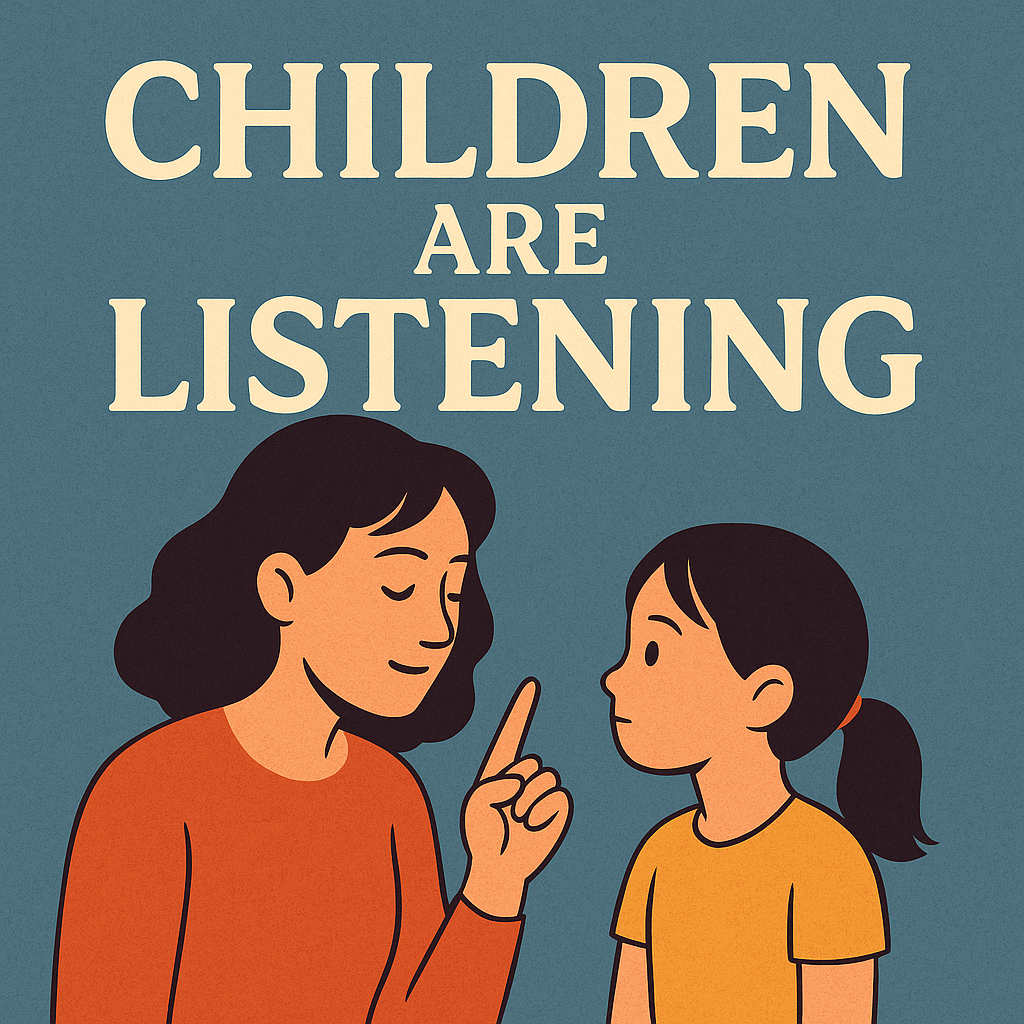Little Sponges

Children Are Listening: The Lasting Power of Our Words
I don’t have children of my own yet, but I was one for quite a while (and if I’m honest, I still act like one most of the time). That experience gives me a perspective I’d like to share.
Children are precious. They are not only our future—they are already whole, curious, and vibrant beings. Too often, we think of children as empty vessels waiting to be filled, but in truth they arrive knowing more about love, joy, and presence than most adults. It is society, our judgments, and our unresolved personal struggles that weigh them down and shape the troubled generations we sometimes see today.
Our words have immense power. They can wound or uplift. And while words affect adults too, the impact on a child lasts far longer. It is much easier to nurture a child’s confidence from the beginning than to try to repair a broken sense of self in adulthood.
Think about it: children believe almost everything we tell them. Tell them the clouds are made of marshmallows and they’ll look for a way to climb up and taste them. Tell them they can fly, and they’ll try. In their early years, you are their entire world—their mirror, their guide, their anchor. The things you say echo in their minds for years, sometimes for life.
When I do have children, I want to be grounded enough in myself that I don’t hand them my own “mess.” Too often, parents act out of stress, frustration, or unresolved pain, snapping at their children and shutting down their natural energy. Yes, life is busy. Yes, parenting is hard, and mistakes are inevitable. But you know what’s harder? Being a child with a parent who hasn’t dealt with their own struggles.
Children are sponges. They absorb not only your words but your tone, your moods, your behaviors. When you tell a child, “You’re bad,” “You’re naughty,” or “You’re horrible,” those words don’t just pass—they become the child’s inner voice. Even casual remarks said in anger—like calling them “a greedy little piggy” at dinner—can leave scars that shape their relationship with themselves for years. Words said in love tend to linger as love. Words said in anger cut deeper.
I know this firsthand. I spent much of my life battling self-esteem issues. I was bullied for years, and I faced difficulties at home. Hurtful words and experiences piled up until I believed them. Even though I knew those words weren’t true, they stuck with me, whispering in moments of doubt. It took years of therapy, effort, and self-reflection to rebuild my sense of worth—and even now, those old voices sometimes resurface.
There’s a Chinese proverb that says, “The fastest horse cannot retrieve the spoken word.” Once words are out, they cannot be taken back. We all speak hastily sometimes, but when we come from a place of love, our words carry healing instead of harm. The way we treat others is often a reflection of how we feel about ourselves.
If you’ve been hurt, take the time to heal. If you find yourself speaking from a place of pain, resentment, or anger, focus on your own growth and self-worth. Otherwise, you risk passing that pain on to your children. Negativity creates a cycle: low moods, isolation, resentment, and more hurt. But cycles can be broken. By changing the way you speak to yourself—by focusing on your strengths, your growth, and what you love about yourself—you can shift your inner monologue. And when you shift your inner monologue, your words to others begin to shift too.
So my plea is this: recognise your wounds, do the work, and rise above them. Not only for yourself, but for the children who are watching, listening, and absorbing every word you say.
They are little sponges—make sure what they soak up nourishes them.
Parenting and personal growth don’t come with a manual—but you don’t have to figure it out alone. Join me in this journey of healing, growth, and mindful living.
[Get in touch today]
team@lauramaelstrom.com
